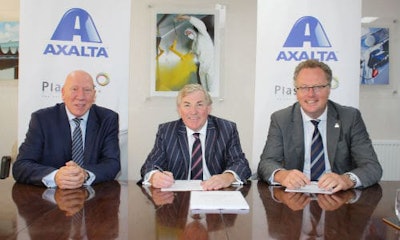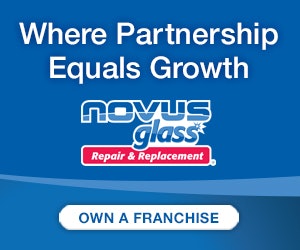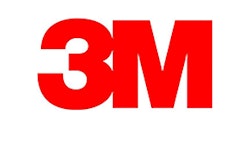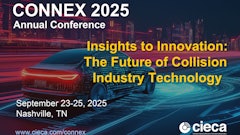
By Jeff Sanford
Toronto, Ontario — August 21, 2017 — In this week’s Tuesday Ticker: AkzoNobel plays nice with shareholders, Axalta acquires the UK’s Plascoat Systems, Fenix Parts reports its latest results, dodgy loans for new cars have some analysts worried and much, much more!
AkzoNobel
-Dutch paint maker Akzo Nobel has been making up with its dissident shareholder, Elliot Advisors, an activist hedge fund from America that had been pushing for management to accept the bid from PPG. That deal didn’t go through, even after several bids and a round of court action. Elliott had gone to the Dutch courts, launching a case they hoped would lead to board chairman Antony Burgmans being replaced. That didn’t happen, but it seems this is not the end of the story.
Elliot Advisors continues to exert its influence, which is now considerable. It was recently revealed by securities filings that Elliot owns a substantial 9.5 percent stake in AkzoNobel. AkzoNobel has recently issued a press release announcing that the company and the hedge fund have found common agreement on many things, and will put aside legal challenges to work constructively on the future of the company together.
According to the release, AkzoNobel has, “… reached an agreement with affiliates of [Elliott] following recent constructive dialogue, with the aim of normalizing the relationship with its shareholders. The agreement includes alignment on the AkzoNobel strategy to fully separate Specialty Chemicals. In addition, Elliott will support the appointment of Mr. Thierry Vanlancker as a member of the Board of Management of AkzoNobel at the upcoming Extraordinary General Meeting on September 8, 2017… AkzoNobel and Elliott have also agreed, subject to the terms of a standstill agreement, to seek to suspend all ongoing litigation for at least three months … “
Management had come up with an alternative plan to drive growth at the company that was offered as an alternative to an acquisition by PPG. That plan would see the company split into two smaller units. Burgmans was quoted in the release and reiterated the decision to split the company in two. “I am pleased our recent constructive discussions with Elliott improved understanding between both parties. AkzoNobel remains focused on creating two world-class, high-performing businesses; Specialty Chemicals and Paints and Coatings,” said Burgmans. “This agreement is fully in line with our ongoing program to strengthen and maintain a constructive dialogue with all our shareholders. We look forward to a successful EGM on September 8.”
Axalta
Axalta has acquired a UK firm, Plascoat Systems, which is the company’s sixth acquisition this year. A report in the Philadelphia Inquirer suggested that Axalta, “… has spurned takeover interest from would-be acquirers including European paint and materials giant AkzoNobel …”
3M
The President and CEO of 3M, Inge Thulin, was involved in last week’s drama around President Trump’s Manufacturing Advisory Council. Thulin became the seventh chief executive over the last week to leave one of the White House councils.
Fenix Parts
Auto recycler Fenix Parts finally got its fourth quarter financials out. A press release from the publicly-traded auto parts recycler notes net revenues increased by 2 percent to $33.2 million in the fourth quarter, up from third quarter 2016 net revenues of $32.5 million. The revenue increase was driven by higher sales of recycled OEM parts, according a press release.
The gains were partially offset by lower scrap metal volumes that saw revenues from scrap decline. The company registered a net loss of $1.1 million on the quarter. The release also noted that sales from the company’s Canadian operations were $3.5 million in the fourth quarter of 2016, up slightly compared to $3.3 million for the third quarter of 2016 and down slightly compared to $3.7 million in the fourth quarter of 2015. For the first quarter of 2017, the company expects to report consolidated net revenues of approximately $34 million, according to the release.
The CEO of Fenix, Kent Robertson, was quoted as saying, “Fourth quarter 2016 revenues increased sequentially due to improved sales to repair shop customers, partially offset by lower scrap metal revenues during the period as a result of lower volumes. Adjusted operating Income increased to $0.5 million, despite continued high professional fees. We want to thank our shareholders for their patience during this arduous process of completing our first audit with our new auditors and filing our 10-K for 2016. With this audit base now achieved, we are optimistic that our future filings can be made on a more timely basis.”
LKQ
A report from our US-based content partner, Repairer Driven News, notes that the CEO of the publicly-traded recycler, “… confirmed last week that the company is distributing new OEM parts.” The CEO, Dominick Zarcone, hosted a conference call recently and was asked by an analyst if the company was adding OEM parts to its truck loads. The answer was, “We are,” according to the report.
LKQ has made it a strategy to make sure that trucks making parts deliveries are fully loaded before they hit the road. By utilizing truck to their fullest capacities, the company can save money. The deal involves some 1,100 stock keeping units (SKUs), “… including parts for the 2017 model year,” according to the story. Zarcone apparently went on to say during the call that the company, “wanted to grow parts distribution, and its experience as a distributor of collision parts would be attractive to many companies.”
Related Market Notes
– Some are worried about the type and amount of debt Canadians are taking on to keep auto sales so buoyant. DesRosiers Automotive Consultants notes that although light vehicle sales are at record levels, a vast majority of those sales—85 percent—are based on credit. What has critics really worried are the lengthening terms on auto loans. Apparently, the average term for a new vehicle purchase has increased to six years, up from traditional terms of four or five years, according to a report from the Financial Consumer Agency of Canada.
The latest wrinkle: Now it appears loans as long as eight years are increasingly being advanced. Considering how much of a vehicle’s value is lost the day it drives off the lot, the eight year terms have led to some motorists ending up with negative equity, that is, they’ve lost the car or sold it for less than what they owe. The average auto-loan length reached an all-time high of 69.3 months in June, according to a report by Edmunds. That’s 6.8 percent longer than five years ago. The financing trend also lead to the highest monthly payments for the year, now averaging $517.
– At least the vehicle lending situation is not as bad here as it is in the US. In that country, the value of securities based on sub-prime auto loans blossomed to $26 billion in 2016. The market for these securities, which stream car payments back to the investors who buy the debt, was a fraction of that total just a few years ago. But with interest rates so radically low, many investors are desperate to find fixed-income, bond-like securities that pay a higher interest rate. Just as in the sub-prime mortgage debacle, banks have been rushing to create these securitized loan instruments to investors.
However, a troubling story has arisen regarding the close relationship between Fiat Chrysler and one of the banks manufacturing these securities, Banco Santander SA. According to a report on Bloomberg, “Since 2013, as US car sales soared, the two have built one of the industry’s most powerful subprime machines … Wall Street has rewarded lax lending standards that let people get loans without anyone verifying incomes or job histories. For instance, Santander recently vetted incomes on fewer than one out of every 10 loans packaged into $1 billion of bonds, according to Moody’s Investors Service. The largest portion were for Chrysler vehicles.”
The story goes on to say that dealers, “gamed the loan application process so low-income borrowers could drive off in new cars, state prosecutors said in court documents … Santander says it has cut ties with hundreds of dealerships that were pushing unsound loans, some of which defaulted as soon as the first payment.”
A basic problem with securitization that was revealed when these debt-instruments were being written on mortgages was this: If the person writing the loan knows they are not going to be responsible for having to collect on the loan, they generally loosen lending practices to generate large amounts of volume. By packaging each line with others and then selling off those loans to investors, the person originating the loan has no interest in ensuring the person taking the loan can pay it back. If the banker gets paid for making a security, and then sells it off to some other faceless, nameless investor, the necessary tie between creditor and debtor is broken.
There is no interest (in the short-term) for making sure the loan can be repaid. Of course, when the investors who the debt-securities find the payments aren’t coming in as promised, the bankers have already made off with the money. The car is reclaimed and then sold into the used car market. The investor left holding the now less valuable security takes their lumps.
The story on Santander notes that, “State authorities also said an internal Santander review in 2013 found that 10 out of 11 loan applications from a Massachusetts dealer contained inflated or unverifiable incomes … Santander kept originating the dealer’s loans anyway, even as they continued to default … some dealerships even asked Santander to double-check customers’ incomes because they didn’t trust their own employees, the authorities said. They also said the lender didn’t always oblige because that would put it at a ‘competitive disadvantage.’”





















